
The Tranquil Beauty of the Nistru River
The Nistru River, flowing through the heart of Moldova, is a serene and picturesque destination for tourists seeking a peaceful escape. This majestic river stretches over 1,300 kilometers and offers a unique blend of natural beauty and cultural heritage. One of the highlights of visiting the Nistru River is the opportunity to explore its lush landscapes and diverse wildlife. The riverbanks are dotted with charming villages, ancient forts, and historic monasteries, providing a glimpse into Moldova's rich history and traditions. Nature enthusiasts will appreciate the river's tranquil waters, perfect for fishing, boating, and bird-watching. In addition to its natural allure, the Nistru River is also a hub for local festivals and events, where visitors can immerse themselves in Moldovan culture. Whether you're enjoying a traditional folk music performance or sampling delicious local cuisine, the Nistru River offers an authentic and unforgettable experience.
Local tips in Nistru River
- Visit during late spring or early autumn for the best weather and fewer crowds.
- Consider hiring a local guide to learn about the river's history and hidden gems.
- Pack comfortable walking shoes if you plan to explore the villages and historical sites along the riverbanks.
- Don't miss the local festivals and events to experience Moldovan culture firsthand.
- Try the local fish dishes, especially those made from fresh catches from the river.
The Tranquil Beauty of the Nistru River
The Nistru River, flowing through the heart of Moldova, is a serene and picturesque destination for tourists seeking a peaceful escape. This majestic river stretches over 1,300 kilometers and offers a unique blend of natural beauty and cultural heritage. One of the highlights of visiting the Nistru River is the opportunity to explore its lush landscapes and diverse wildlife. The riverbanks are dotted with charming villages, ancient forts, and historic monasteries, providing a glimpse into Moldova's rich history and traditions. Nature enthusiasts will appreciate the river's tranquil waters, perfect for fishing, boating, and bird-watching. In addition to its natural allure, the Nistru River is also a hub for local festivals and events, where visitors can immerse themselves in Moldovan culture. Whether you're enjoying a traditional folk music performance or sampling delicious local cuisine, the Nistru River offers an authentic and unforgettable experience.
When is the best time to go to Nistru River?
Iconic landmarks you can’t miss
Soroca Fortress
探索摩尔多瓦索罗卡要塞:中世纪的奇迹,历史的丰碑,德涅斯特河畔的文化瑰宝。
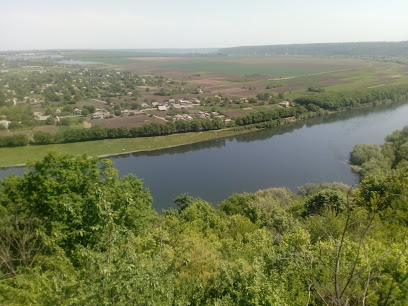
Lower Dniester National Park
Discover Ukraine's Lower Dniester National Park: A haven for birdlife, diverse ecosystems, and tranquil river landscapes.
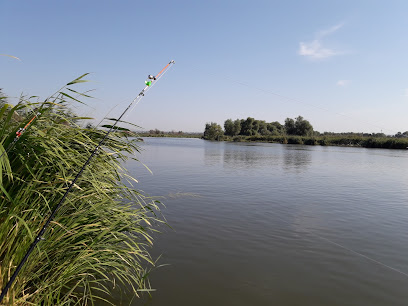
Stephen the Great Monument
A tribute to Moldova's greatest ruler, the Stephen the Great Monument stands as a symbol of national pride in the heart of Chișinău.
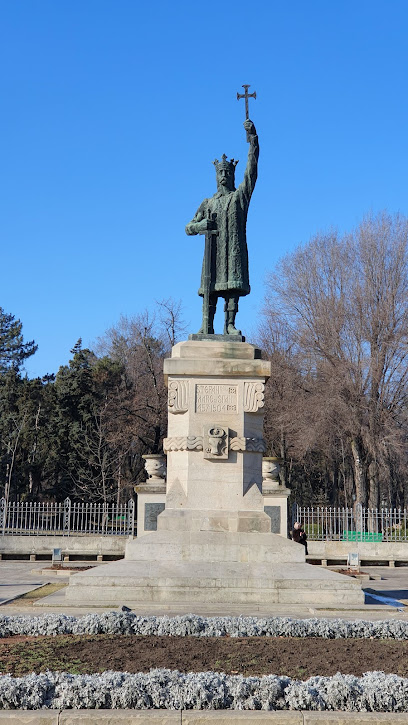
Suvorov Monument
A striking monument in Tiraspol's central square, honoring General Alexander Suvorov, the city's founder and a celebrated military leader.
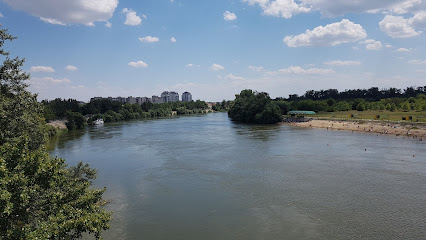
Țaul Park
Discover Moldova's largest park: a historic landscape with diverse flora, tranquil trails, and glimpses into the past. Free entry!
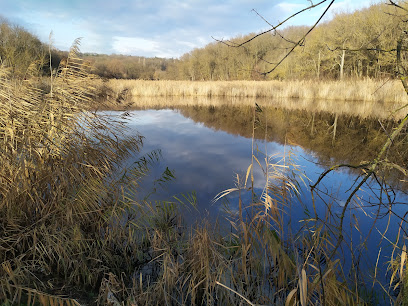
Noul Neamt Monastery
Discover Moldova's spiritual heart at Noul Neamt Monastery: a serene escape with stunning architecture and rich history in a tranquil setting.
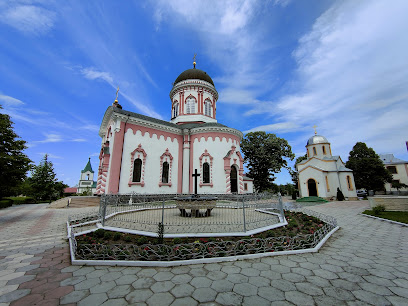
Rudi Monastery
Discover spiritual serenity at Rudi Monastery, a historic Moldovan treasure nestled in a picturesque landscape near the Dniester River.
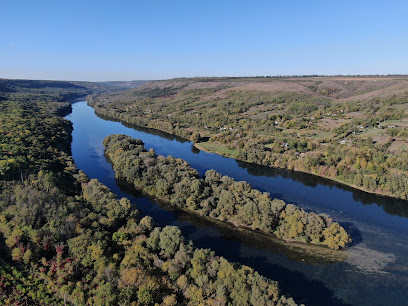
Suta de Movile
Explore Moldova's geological wonder: a landscape of thousands of mounds steeped in history and legend along the Prut River.
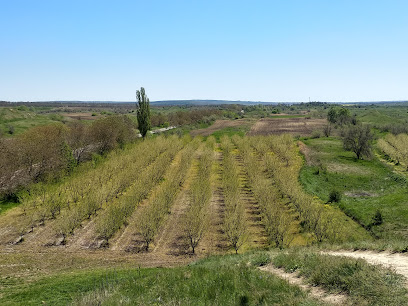
Pushkin Monument
A tribute to the great Russian poet Alexander Pushkin, this monument in Bender offers a serene glimpse into the region's rich cultural heritage.
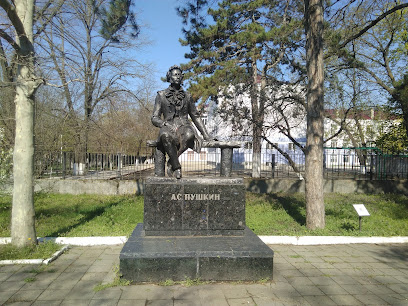
Cascada Țipova
Discover Cascada Țipova, a serene Moldovan nature preserve with stunning waterfalls, lush landscapes, and rich biodiversity.
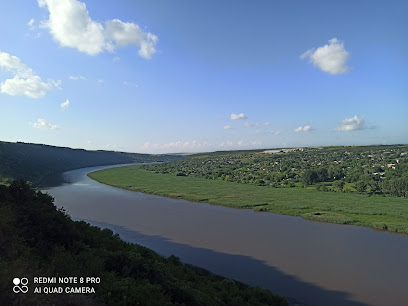
Dniester
Explore the Dniester River in Moldova: a historic waterway offering ecotourism, cultural heritage, and natural beauty.
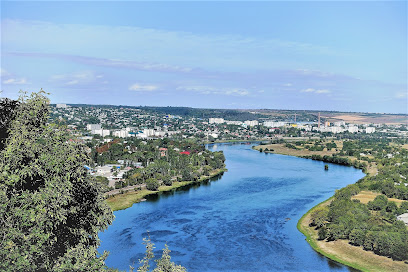
Nistru
Discover the tranquil beauty of the Nistru River in Moldova, a perfect escape for nature and relaxation amidst picturesque landscapes.
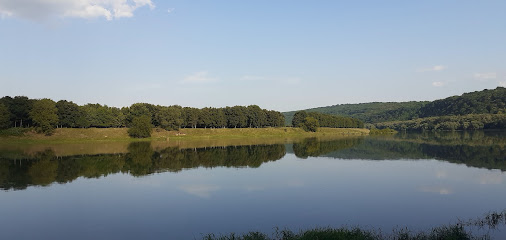
Unmissable attractions to see
Chisinau Central Market
Explore the vibrant Chisinau Central Market, where local flavors, crafts, and culture come alive in the heart of Moldova's capital.
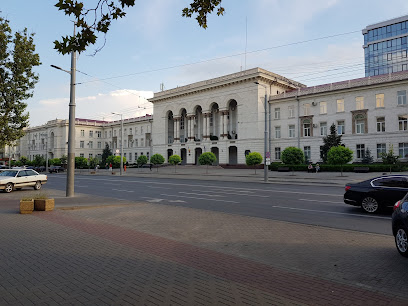
OrheiLand
Experience the thrill of OrheiLand, Moldova's premier amusement park, where fun meets culture in an unforgettable adventure.
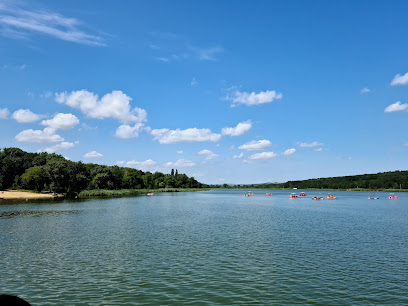
Lower Dniester National Park
Discover the enchanting beauty of Lower Dniester National Park, a natural paradise in Ukraine featuring diverse ecosystems and breathtaking landscapes.
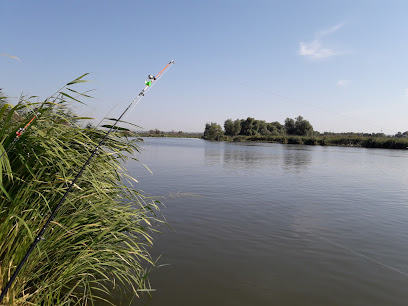
Aqua Magic
Discover Aqua Magic in Sociteni, Moldova - the ultimate water park for thrilling adventures and relaxing fun for the whole family.
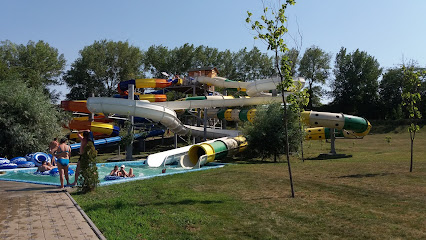
Plaja Vadul lui Vodă
Explore the beautiful Plaja Vadul lui Vodă, a serene beach in Moldova, perfect for relaxation, water sports, and vibrant summer festivities.
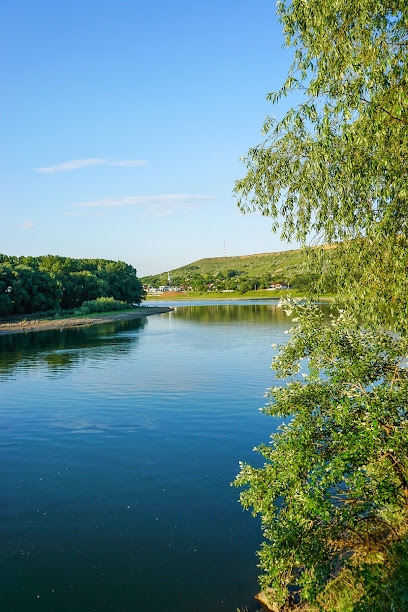
Saharna Monastery
Discover the serene beauty and spiritual significance of Saharna Monastery, a hidden gem along the Nistru River in Moldova.
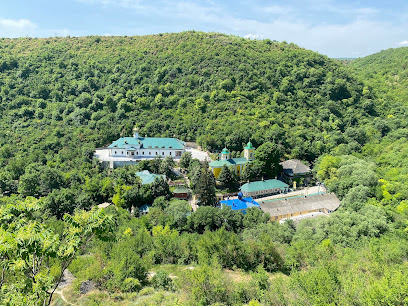
Cave Monastery
Discover the stunning Cave Monastery of Butuceni in Moldova, a unique blend of spirituality, history, and breathtaking natural landscapes.
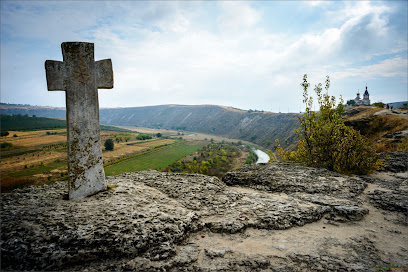
Tipova Monastery
Discover the ancient Tipova Monastery, a spiritual haven carved into cliffs, surrounded by the stunning landscapes of Moldova, along the banks of the Nistru River.
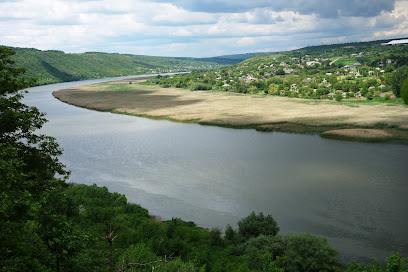
Vinaria Poiana
Explore the exquisite wines and rich heritage of Vinaria Poiana, a captivating winery nestled in the picturesque landscape of Ulmu, Moldova.
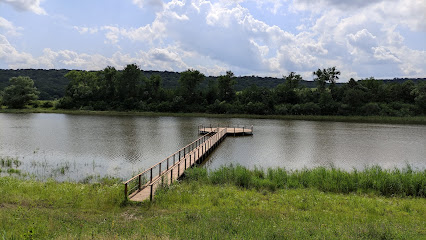
Rocky monastery of Tipova
Explore the breathtaking Rocky Monastery of Tipova, a historic gem nestled in the stunning landscapes of Moldova, perfect for culture and nature enthusiasts alike.
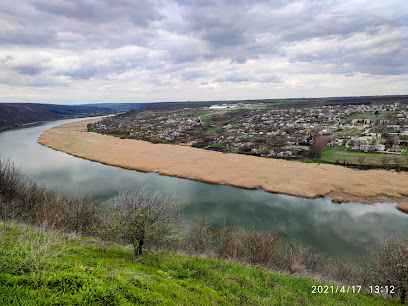
Former Water Tower
Explore the Former Water Tower in Chișinău, a historical landmark offering stunning views and a glimpse into the city's rich architectural heritage.
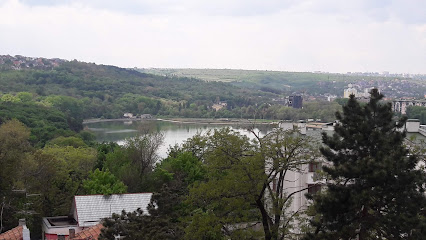
Cascada Țipova
Explore the stunning Cascada Ţipova in Moldova, where cascading waters and lush nature create an unforgettable escape into tranquility.
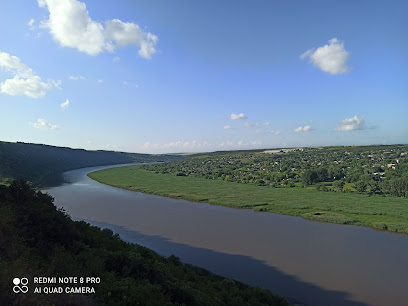
Vladimir Lenin Monument
Explore the Vladimir Lenin Monument in Chișinău, Moldova, a significant memorial reflecting the nation's complex history and cultural heritage.
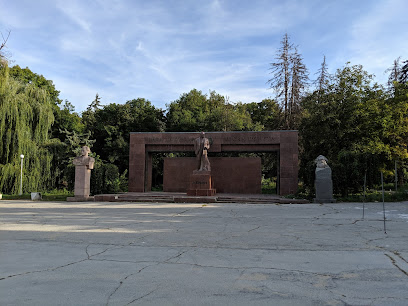
Nistru
Explore the serene beauty of Nistru, a stunning tourist attraction in Vadul lui Vodă, Moldova, offering nature, culture, and delightful experiences.
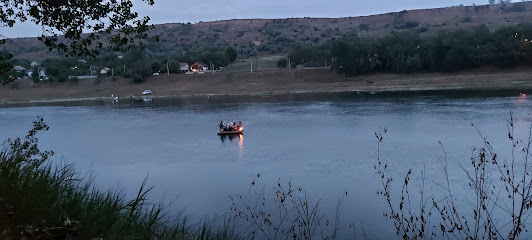
Cricova moldova
Discover the serene beauty and cultural heritage of Cricova Park, a hidden gem in Moldova ideal for relaxation and exploration.
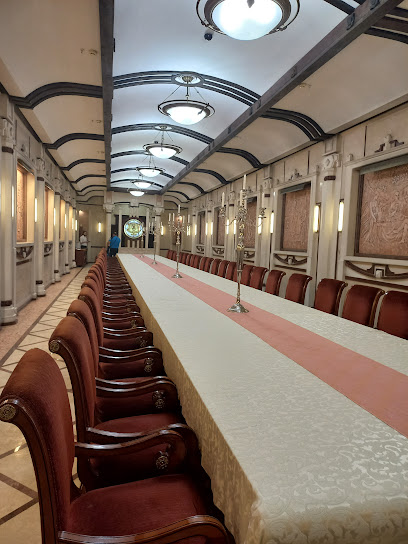
Essential places to dine
Pegas Terrace & Restaurant
Discover Pegas Terrace & Restaurant in Chișinău - A gastronomic haven blending European flavors with breathtaking city views.
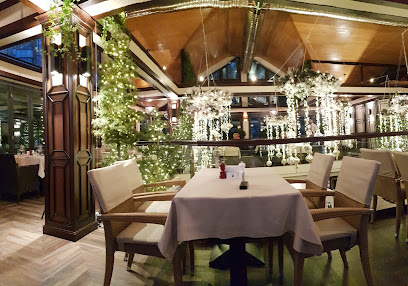
Crème de la Crème
Experience authentic French cuisine at Crème de la Crème in Chișinău—where delectable pastries meet warm hospitality.
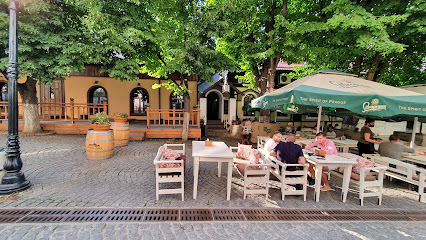
Oliva
Savor authentic Mediterranean flavors at Oliva in Chișinău – where every dish tells a story.
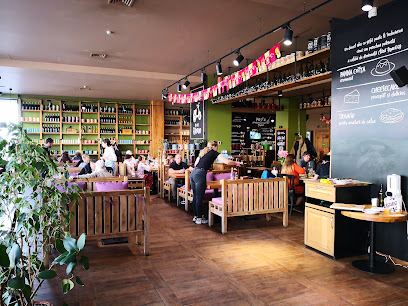
ASCONI Winery
Experience the best of Moldovan culture at ASCONI Winery – where exquisite wines meet delicious cuisine in a picturesque setting.
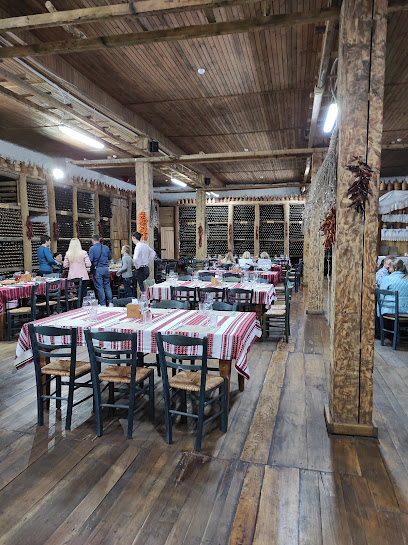
La Sarkis
Experience exquisite Eastern European cuisine at La Sarkis in Chișinău, where every dish tells a story of tradition and flavor.
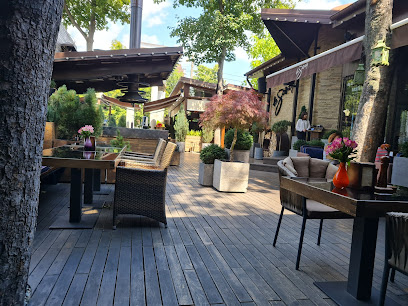
La Plăcinte
Discover authentic Romanian cuisine at La Plăcinte in Chișinău - where every dish tells a story.
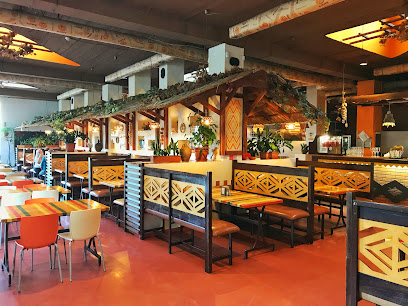
Gök-Oguz
Discover authentic Bulgarian flavors at Gök-Oguz in Chișinău - renowned for mutton barbecue and warm hospitality.
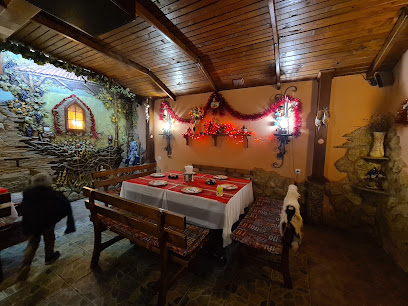
Gastrobar
Experience modern European cuisine at Gastrobar in Chișinău - where every dish tells a story and every visit is unforgettable.
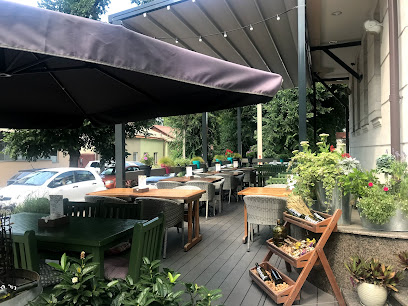
Taifas
Discover Taifas in Chișinău - A Traditional Romanian Restaurant Serving Authentic Cuisine in a Warm Atmosphere.
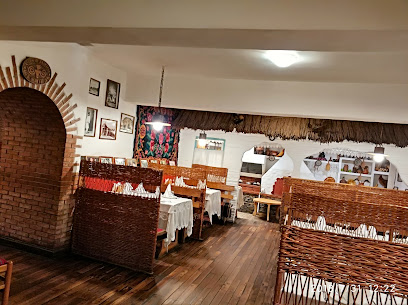
Villa Etnica
Discover authentic Moldovan flavors at Villa Etnica in Butuceni - where tradition meets culinary excellence amidst breathtaking scenery.
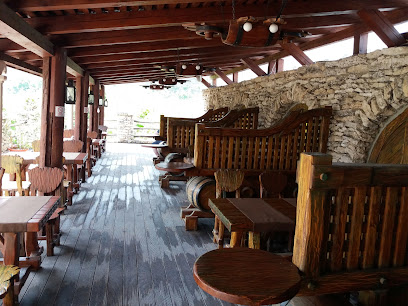
Popasul Dacilor
Experience the essence of Romanian cuisine at Popasul Dacilor in Chișinău, where tradition meets flavor in every dish.
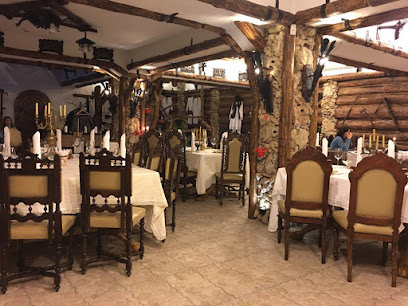
Osho Bar & Kitchen
Experience modern European cuisine at Osho Bar & Kitchen in Chișinău – where taste meets elegance in every dish.
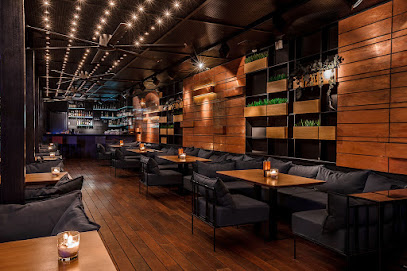
Chateau Vartely
Experience the enchanting world of Moldovan wines at Chateau Vartely – where tradition meets elegance in every glass.
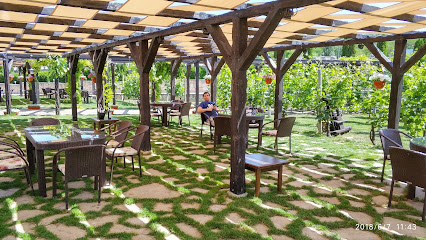
Beer House
Discover the essence of European dining at Beer House in Chișinău, where great food meets exceptional brews in a cozy atmosphere.
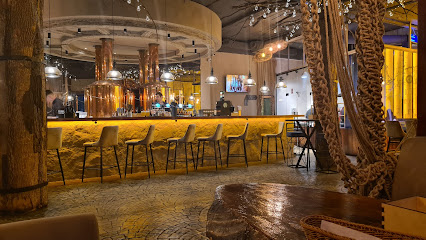
Fuior
Discover the authentic taste of Romania at Fuior in Chișinău – a culinary experience that blends tradition with elegance.
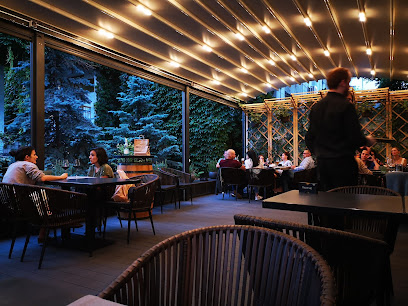
Markets, malls and hidden boutiques
Chisinau Central Market
Explore the bustling Chisinau Central Market, where local flavors, crafts, and vibrant culture come together in the heart of Moldova's capital.
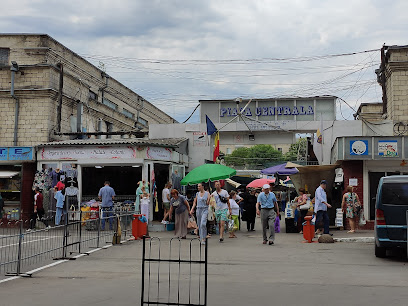
Shopping MallDova
Discover the vibrant blend of local and international shopping at Shopping MallDova in Chișinău, a perfect destination for leisure and retail therapy.
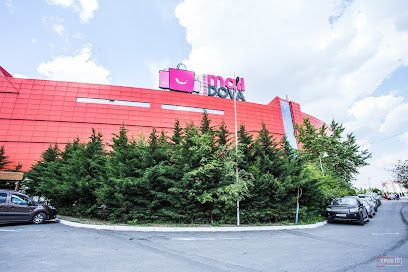
Dendrariu Park
Explore the beauty of Dendrariu Park in Chișinău, a serene retreat filled with exotic flora, walking paths, and artistic installations.
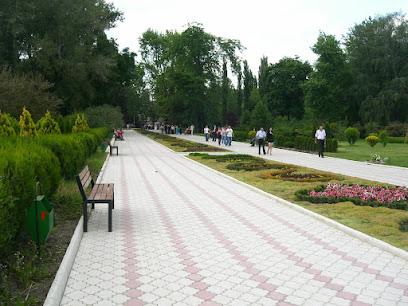
Unic
Explore Unic Shopping Mall in Chișinău: Your ultimate destination for shopping, dining, and family entertainment in Moldova.
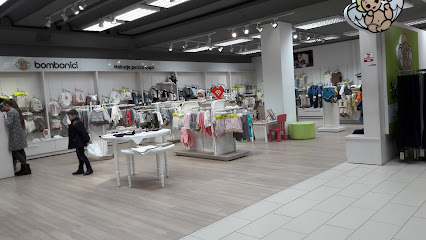
Zity Mall
Explore Chișinău's Zity Mall: A shopping paradise with diverse brands, delightful dining, and family-friendly entertainment in the heart of Moldova.
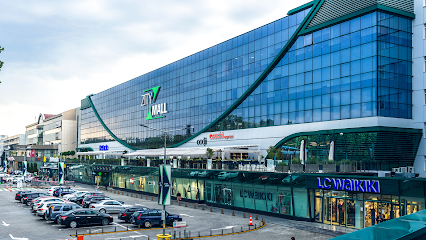
Atrium
Discover Chișinău's Atrium Shopping Mall: A vibrant hub for shopping, dining, and entertainment, perfect for every traveler.
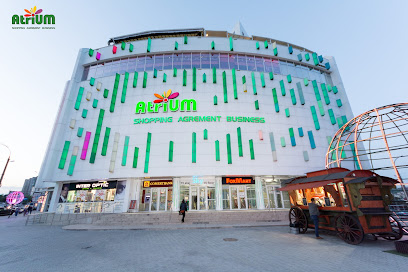
Elat
Explore Elat: Chișinău's premier shopping destination with diverse shops and delightful dining options in a modern setting.
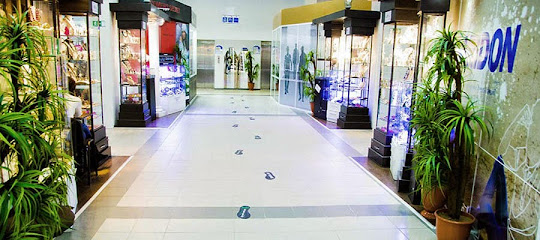
Curchi Monastery
Discover the tranquility of Curchi Monastery, a historical and spiritual haven in the heart of Moldova's countryside.
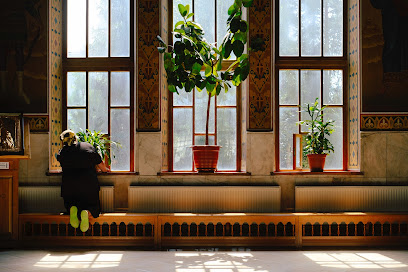
Grand Hall
Explore the Grand Hall in Chișinău, a vibrant shopping mall offering a mix of local and international brands, delectable dining options, and family-friendly entertainment.
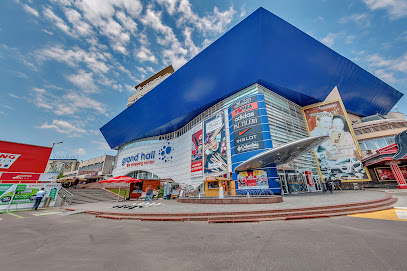
Port Mall
Explore Port Mall in Chișinău - a shopping paradise featuring diverse brands, delicious dining, and exciting entertainment for all travelers.
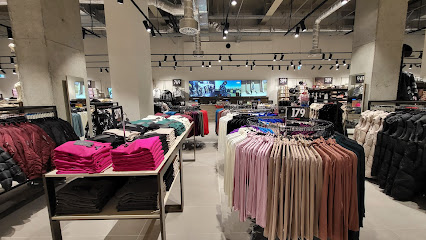
Local Discounter
Explore Local Discounter in Chișinău for budget-friendly shopping and a taste of Moldovan culture, offering fresh produce and essential goods at great prices.
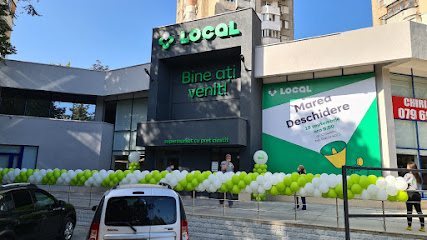
Oasis Shopping Mall
Explore the vibrant Oasis Shopping Mall in Chișinău, where shopping, dining, and entertainment come together in a modern retail paradise.
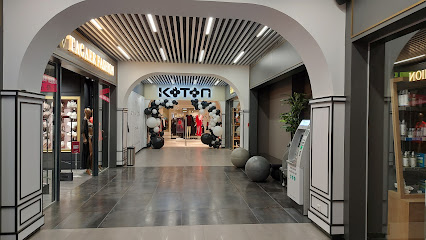
Petru Costin Gallery
Discover the vibrant artistic landscape of Moldova at Petru Costin Gallery, a must-visit destination for art lovers in Ialoveni.
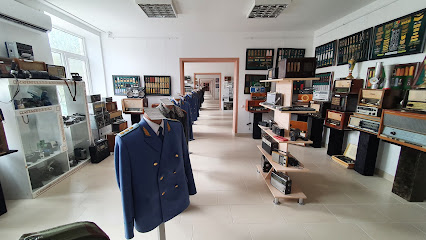
Souvenirs Folk & Art
Explore authentic Moldovan crafts at Souvenirs Folk & Art, your destination for unique gifts and cultural treasures in Chișinău.
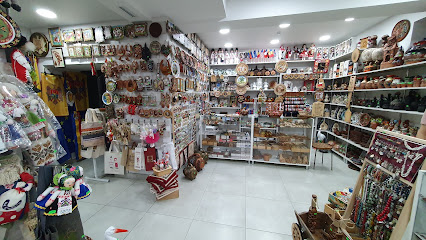
Fantezie. Souvenir Shop
Explore authentic Moldovan souvenirs and exquisite wines at Fantezie Souvenir Shop in the heart of Chișinău.
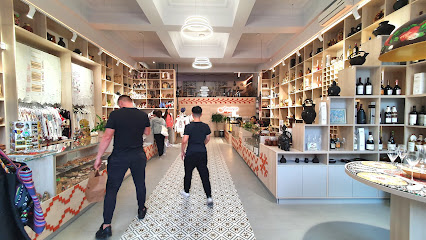
Essential bars & hidden hideouts
PartyZAN Game Private Club
Experience the thrill of games, delicious cocktails, and unforgettable fun at PartyZAN Game Private Club in Chișinău, Moldova.
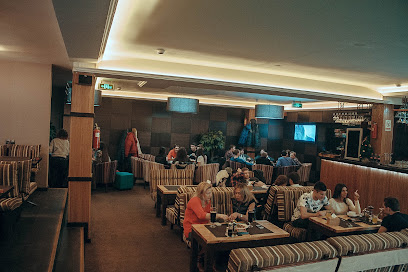
Budweiser Grill & Pub
Explore the authentic flavors of Moldova at Budweiser Grill & Pub, where local brews and grilled specialties await every visitor.
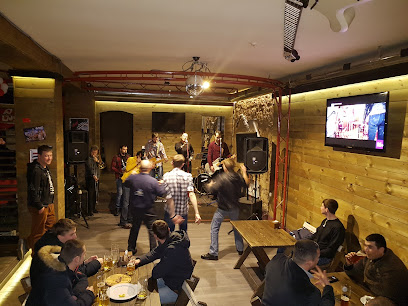
Jack's Bar & Grill
Enjoy American cuisine and vibrant nightlife at Jack's Bar & Grill in Chișinău, a must-visit for food lovers and party-goers alike.
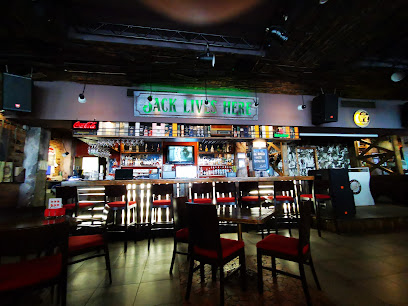
Beer House
Discover the culinary delights of Beer House in Chișinău, where European cuisine meets a cozy atmosphere and exceptional craft beers.
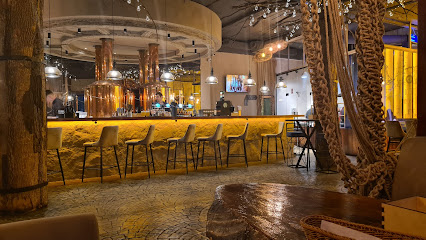
Brother's Pub
Discover Brother's Pub in Chișinău: A lively spot for delicious food, a great drink selection, and a taste of local culture.
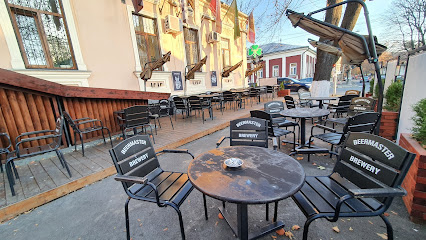
Keller Holz Gastropub
Experience the best of Chișinău's culinary scene at Keller Holz Gastropub, where local flavors meet modern dining in a vibrant atmosphere.
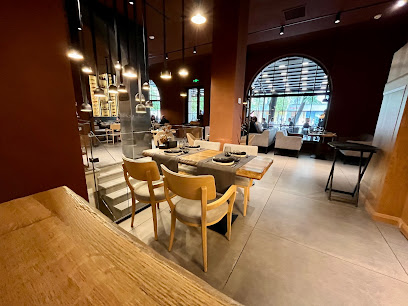
Villa Drago
Experience authentic Moldovan cuisine at Villa Drago, a charming restaurant in Vadul lui Vodă, perfect for food lovers and travelers alike.
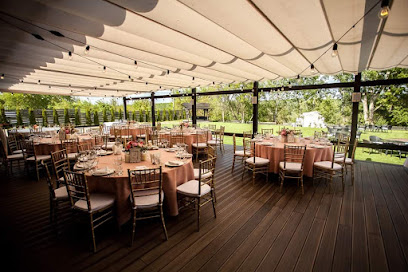
Cooper Karaoke Bar & Kitchen
Experience an unforgettable night of singing and dining at Cooper Karaoke Bar & Kitchen in Chișinău, where every moment is filled with joy and laughter.
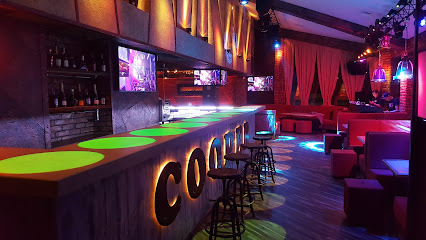
Taproom 27 - A Hoppy Place
Discover the vibrant atmosphere and extensive craft beer selection at Taproom 27 in Chișinău, a must-visit bar for every beer lover.
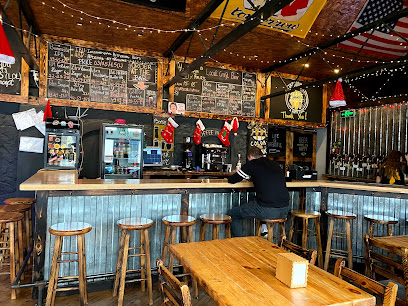
Marlène
Discover Marlène, the chic cocktail bar in Chișinău, where innovative drinks and a stylish atmosphere create unforgettable moments.
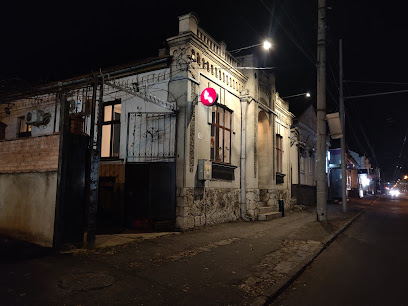
Art-Club Karaoke
Experience the joy of singing at Art-Club Karaoke in Chișinău - a lively karaoke bar perfect for tourists seeking fun and entertainment.
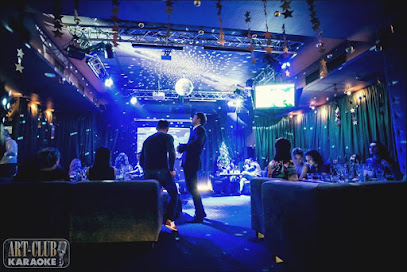
Craft Baza
Discover the essence of Chișinău nightlife at Craft Baza, a cozy pub offering local beers and delicious pub food in a welcoming atmosphere.
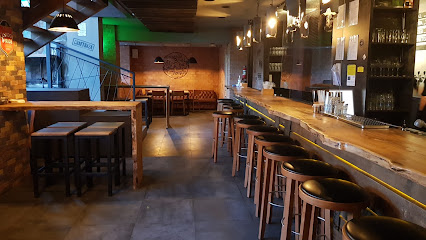
Karaoke Krokus
Experience the vibrant nightlife of Chișinău at Karaoke Krokus, where music and fun blend seamlessly for an unforgettable evening.
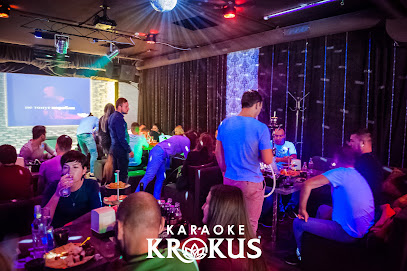
EscoBar
Experience the vibrant nightlife of Chișinău at EscoBar, where cocktails, sushi, and good vibes meet.
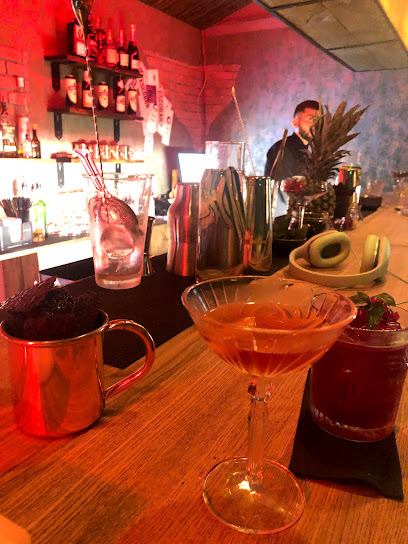
Local Phrases about Nistru River
-
- HelloBună ziua
[Boo-nuh zee-wah] - GoodbyeLa revedere
[La re-ve-de-re] - YesDa
[Dah] - NoNu
[Noo] - Please/You're welcomeVă rog
[Vuh rohg] - Thank youMulțumesc
[Mool-tsoo-mesk] - Excuse me/SorryScuzați-mă
[Skoo-za-tsi muh] - How are you?Ce mai faci?
[Cheh my fahch?] - Fine. And you?Bine. Și tu?
[Bee-neh. Shee too?] - Do you speak English?Vorbiți engleză?
[Vor-beetsee eng-le-zuh?] - I don't understandNu înțeleg
[Noo oon-tse-leg]
- HelloBună ziua
-
- I'd like to see the menu, pleaseAș dori să văd meniul, vă rog
[Ush doh-ree suh vuhd men-yool, vuh rohg] - I don't eat meatNu mănânc carne
[Noo muh-nuhnk kahr-neh] - Cheers!Noroc!
[No-rok] - I would like to pay, pleaseAș dori să plătesc, vă rog
[Ush doh-ree suh pluh-tesk, vuh rohg]
- I'd like to see the menu, pleaseAș dori să văd meniul, vă rog
-
- Help!Ajutor!
[A-zhoo-tor] - Go away!Du-te!
[Doo-teh] - Call the Police!Sunați Poliția!
[Soo-nutsi Po-lee-tsia] - Call a doctor!Sunați un doctor!
[Soo-nutsi oon dok-tor] - I'm lostM-am pierdut
[Muhm pyer-doott] - I'm illSunt bolnav
[Soomt bohl-nav]
- Help!Ajutor!
-
- I'd like to buy...Aș dori să cumpăr...
[Ush doh-ree suh koom-par] - I'm just lookingDoar mă uit
[Dwahr muh oow-eet] - How much is it?Cât costă?
[Kaht kos-tuh?] - That's too expensiveEste prea scump
[Es-teh prah skoomp] - Can you lower the price?Puteți să reduceți prețul?
[Poo-tehts suh re-doo-cheh-ti pretsool?]
- I'd like to buy...Aș dori să cumpăr...
-
- What time is it?Cât este ceasul?
[Kaht es-te cheh-ah-sool] - It's one o'clockEste ora unu
[Es-teh oh-rah oon-oo] - Half past (10)Zece și jumătate
[Zeh-cheh shee joo-muh-tah-teh] - MorningDimineața
[Dee-mee-neh-tsah] - AfternoonDupă-amiază
[Doo-puh ah-mee-ah-zuh] - EveningSeara
[Seh-ah-rah] - YesterdayIeri
[Yehr] - TodayAstăzi
[Ah-stuhz] - TomorrowMâine
[Muhy-neh] - 1Unu
[Oon-oo] - 2Doi
[Doy] - 3Trei
[Trey] - 4Patru
[Pa-troo] - 5Cinci
[Cheen-chee] - 6Șase
[Sha-she] - 7Șapte
[Shaap-teh] - 8Opt
[Opt] - 9Nouă
[No-uh] - 10Zece
[Zeh-cheh]
- What time is it?Cât este ceasul?
-
- Where's a/the...?Unde este unul/una...?
[Oon-deh es-teh oo-noo/oo-nah] - What's the address?Care este adresa?
[Kah-reh es-teh a-dre-sah] - Can you show me (on the map)?Puteți să-mi arătați (pe hartă)?
[Poo-tehts suh-mee ah-rah-tatsi (peh har-tuh)] - When's the next (bus)?Când vine următorul (autobuz)?
[Kuhnd vee-neh oor-muh-toh-rool (ow-toh-booz)] - A ticket (to ....)Un bilet (către ....)
[Oon be-leht (kuh-treh)]
- Where's a/the...?Unde este unul/una...?
History of Nistru River
-
The Nistru River, also known as the Dniester River, has been a vital waterway for millennia. The river's history can be traced back to the ancient Dacians, who inhabited the region around the 1st century AD. The Dacians utilized the river for transportation, trade, and sustenance. Archaeological findings, including pottery and tools, indicate that the Nistru River was central to their daily lives and economic activities.
-
During the Roman Empire's expansion, the Nistru River became a significant boundary. In the 1st and 2nd centuries AD, the Romans established fortifications along the river to protect their territories from invasions. The remnants of these fortifications, such as the Castra of Tighina (Bender), provide insight into the Roman military strategies and their efforts to control and utilize the river for defense and trade.
-
In the Middle Ages, the Nistru River played a crucial role in the trade networks of the Genoese merchants. The Genoese established trading posts along the river, facilitating commerce between the Black Sea and Central Europe. The river served as a conduit for the exchange of goods such as grain, wine, and furs, significantly contributing to the prosperity of the region.
-
The Nistru River was a key strategic asset during the Ottoman Empire's control of the region in the 16th and 17th centuries. The Ottomans built fortresses along the river to secure their dominance and protect their trade routes. Cities like Bender (Tighina) became important military and administrative centers. The river's role in connecting different parts of the empire and facilitating the movement of troops and goods underscored its strategic significance.
-
During the 18th and 19th centuries, the Nistru River became a frontier between the Russian Empire and the Ottoman Empire. The Treaty of Bucharest in 1812 marked the transfer of the eastern part of Moldova, including the Nistru River, to the Russian Empire. The river's banks saw the construction of new settlements and infrastructure, which contributed to the region's economic development. The river became a crucial artery for transporting goods and people within the expanding Russian Empire.
-
The Nistru River witnessed significant military activity during World War II. It became a battleground as German and Soviet forces clashed in the region. The river's strategic importance was highlighted during the battles, with both sides vying for control over the waterway. The war left a lasting impact on the region, with many remnants of fortifications and war memorials along the riverbanks serving as somber reminders of this tumultuous period.
-
With the dissolution of the Soviet Union in 1991, Moldova gained independence, and the Nistru River became a symbol of national identity and heritage. The river's significance has been celebrated through various cultural and ecological initiatives aimed at preserving its historical and natural legacy. Today, the Nistru River remains a vital part of Moldova's cultural landscape, attracting tourists and historians alike to explore its rich history and scenic beauty.
Nistru River Essentials
-
Nistru River, also known as the Dniester River, can be accessed from various points in Moldova. The nearest international airport is Chișinău International Airport, located about 13 km from the capital city, Chișinău. From the airport, you can take a taxi or a shuttle bus to the central bus station in Chișinău, where you can find buses and minibuses (marshrutkas) to towns along the Nistru River, such as Tiraspol, Bender, and Soroca. The journey by road typically takes 1-3 hours depending on your destination.
-
Transportation within the Nistru River area includes local buses, minibuses (marshrutkas), and taxis. Public transport is quite affordable and connects most towns along the river. For more flexibility, consider renting a car in Chișinău. Bicycling is also a popular option for exploring the scenic riverbanks. In larger towns like Tiraspol, you can use ride-hailing apps for convenience.
-
The official currency in Moldova is the Moldovan Leu (MDL). Credit cards are accepted in most hotels, restaurants, and larger shops, but it is advisable to carry cash, especially in smaller towns and rural areas. ATMs are available in major towns along the Nistru River. It's a good idea to withdraw sufficient cash in Chișinău before heading to more remote areas.
-
The Nistru River area is generally safe for tourists, but it is wise to take standard precautions. Avoid walking alone at night in unfamiliar areas and keep an eye on your belongings in crowded places. Certain areas in Tiraspol and Bender have been reported to have higher petty crime rates, so stay vigilant and avoid displaying valuables. Always have a local emergency contact number handy.
-
In case of emergency, dial 112 for immediate assistance. Police stations and medical facilities are available in major towns along the Nistru River. It is highly recommended to have travel insurance that covers medical emergencies. For minor health issues, pharmacies are accessible where you can purchase over-the-counter medications.
-
Fashion: Do dress modestly, especially when visiting religious sites. Avoid wearing overly revealing clothing. Religion: Do respect local customs and traditions. Cover your head when entering churches and monasteries. Public Transport: Do be respectful and offer your seat to elderly passengers. Don’t eat or drink on public transport. Greetings: Do greet people with a handshake. A slight bow of the head is also a sign of respect. Eating & Drinking: Do try local delicacies and accept food offerings graciously. Don’t refuse hospitality, as it is considered impolite.
-
To experience the Nistru River like a local, visit the local markets where you can buy fresh produce and traditional Moldovan goods. Engage with locals, as they are often friendly and willing to share stories about the area's history and culture. Don’t miss visiting historic sites like the Soroca Fortress and the Old Orhei archaeological complex. For a unique experience, take a boat ride on the river to enjoy the scenic views.
Nearby Cities to Nistru River
-
Things To Do in Vinnytsia
-
Things To Do in Iasi
-
Things To Do in Chișinău
-
Things To Do in Suceava
-
Things To Do in Khmelnytskyi
-
Things To Do in Tiraspol
-
Things To Do in Chernivtsi
-
Things To Do in Ternopil
-
Things To Do in Ivano-Frankivsk
-
Things To Do in Kropyvnytskyi
-
Things To Do in Focsani
-
Things To Do in Kyiv
-
Things To Do in Cherkasy
-
Things To Do in Sighisoara
-
Things To Do in Brasov








